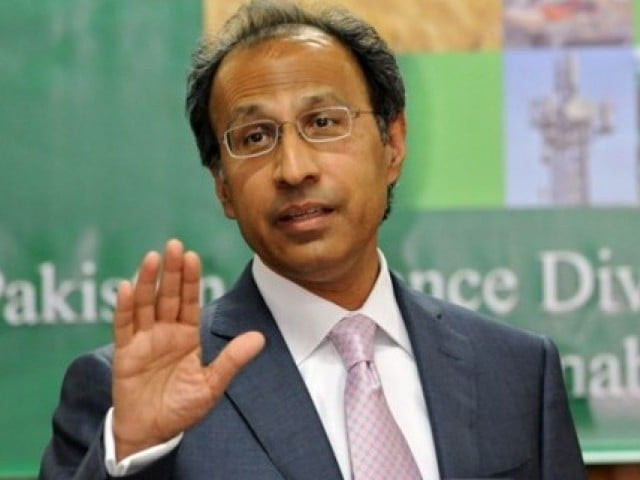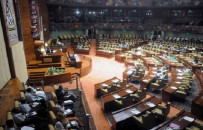Parliament biggest obstacle to economic reform: Sheikh
Finance minister says govt is cognisant of the need to be financially self-sustaining and committed to tax reform.

The biggest obstacle standing in the way of the government achieving its targets on fiscal reform is Parliament, said Finance Minister Abdul Hafeez Sheikh, in a meeting with the International Monetary Fund in Washington on Sunday.
The finance minister is in the US capital to hold discussion with the international lender to restore the suspended $11.3 billion loan program, which the IMF put on hold due to Islamabad’s inability to pass essential fiscal reforms, including an end to unaffordable subsidies and the deregulation of the energy sector.
Sheikh laid out the government’s efforts to raise its revenues and curb expenses in order to bring its fiscal deficit down to a more manageable 4.5 per cent of the total size of the economy. He highlighted the cases against over 4,000 commercial organisations which are still stuck in court.
The minister said that the government was cognisant of the need to be financially self-sustaining and committed to tax reform, including levying a value added tax, renamed the reformed general sales tax (RGST), but had not been able to overcome opposition in Parliament.
“We do not want to be dependent on external financial assistance. We want more trade, not aid,” said the finance minister, repeating a mantra that has been repeated often by the Zardari administration’s economic managers. “We want access to Western markets for Pakistani goods.”
In his meeting with US Undersecretary of State for Economic Affairs Robert Hormats, the minister came away with a US assurance of support for a time-limited trade concession deal offered to the country by the European Union as a means of helping Pakistan deal with the economic impact of the devastating 2010 summer floods.
The support, however, comes despite the failure of the Obama administration to surmount Congressional objections to a similar trade concession deal that was offered by the Bush administration.
The minister hinted that Pakistan may seek another IMF loan programme in order to close the gap between government revenues and expenditures. However, he also stated that Islamabad would soon begin repayments on the previous IMF loan program, which are scheduled to begin towards the end of 2012. This implies that the second loan program will be used to help pay off the first one.
Sources say that Pakistan faced tough questions from IMF officials on its failure to implement a reform agenda. Meetings between the two sides are expected to continue on Monday.
Meanwhile, the finance minister also met with his counterpart from Germany, Dick Niebel, who offered his country’s support for
hydroelectric power projects and small dams in Pakistan.
Published in The Express Tribune, April 18th, 2011.



















COMMENTS
Comments are moderated and generally will be posted if they are on-topic and not abusive.
For more information, please see our Comments FAQ